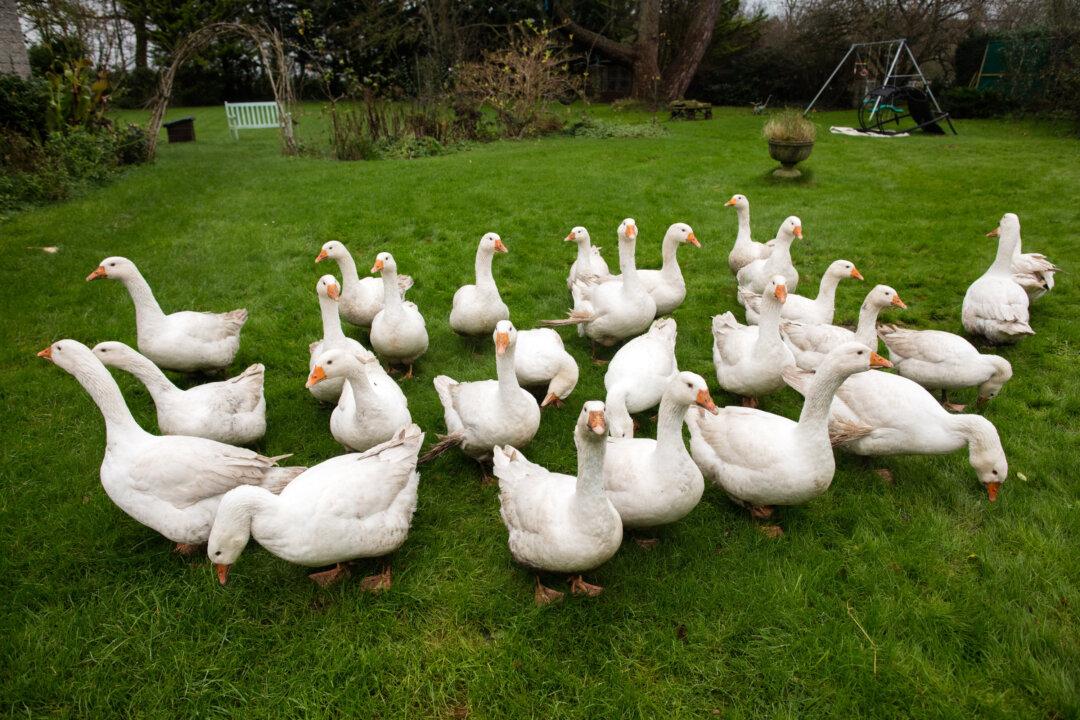An “avian influenza prevention zone” has been declared across Great Britain as the UK tackles its largest-ever outbreak of bird flu.
From midday on Oct. 17, it will be a legal requirement for all bird keepers in England, Scotland, and Wales to follow strict biosecurity measures to help protect their flocks from the threat of avian flu, the Department for Environment, Food & Rural Affairs (DEFRA) announced.





